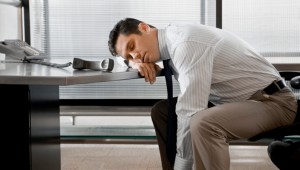 Hypnosis for Sleep Disorders
Hypnosis for Sleep Disorders
Hypnosis (also known as “hypnotherapy”) is often touted as a natural treatment for chronic sleep disorders, a problem estimated to affect millions of Americans each year. Although hypnosis has yet to be extensively studied in treatment of insomnia and other sleep-related conditions, the existing research hints that hypnosis may be of some use in achieving sounder sleep.
The Effects of Hypnosis on Sleep
Hypnosis is a trance-like state of mind during which the hypnotized individual experiences deep relaxation, focused attention, and greater openness to suggestion. Because of its ability to increase responsiveness, hypnosis is frequently used to alter behaviors and reactions that could be contributing to chronic health problems (such as insomnia and other sleep disorders.)
Using Hypnosis for Sleep
If you’re experiencing chronic sleep problems, it’s important to consult your physician to make sure that your sleep troubles aren’t a symptom of an underlying medical condition (such as sleep apnea). Self-treating and avoiding or delaying standard care can have serious consequences.
People feel happier and healthier when they sleep properly. Great sleep helps to nourish your immune system, your heart, your lungs and your skin. Good sleep even helps you maintain a healthier weight. In fact, everything works better when you sleep better.
And have you ever noticed how the world just seems better all round when you get the right quality and quantity of refreshing sleep?
Poor sleep impairs performance in all areas, from driving your car safely to doing well at sports or putting in a good day’s work. According to the National Sleep Foundation in the UK, people with sleep problems are more likely to develop psychiatric problems than people who sleep well – and we can all attest to being more irritable or emotional when tired. Many accidents at work also happen because of sleep deprivation – even the nuclear disaster at Chernobyl was due to human error brought on by sleep deprivation.
So it’s clear that good sleep is vital on many fronts. And it’s curious that the average person nowadays sleeps 20% less per night than their predecessors a hundred years ago. This is likely due to noisier, more brightly lit environments, increasingly busy lives and the importance of night time social life in our modern world.
Hypnosis can be a very effective treatment for insomnia, whether you have difficulty with sleep onset, sleep maintenance, or both. Once a medical basis for the disorder has been ruled out and the patient has been educated about sleep hygiene practices, hypnosis is utilized to de-activate the patient’s wake system. People with insomnia experience high levels of cognitive activity prior to and during bedtime. They typically replay the day’s activities, stressful events in their lives and the fact that they cannot get to sleep. This keeps the wake system functioning, even as the sleep system becomes activated. Hypnosis works by inducing a deep state of relaxation, one that affects the mind and body alike. A deep state of relaxation clears the mind of intruding and repetitive thoughts while simultaneously suppressing autonomic nervous system activity. The result is that the patient’s sleep system becomes the dominant, operative system and sleep is initiated.
